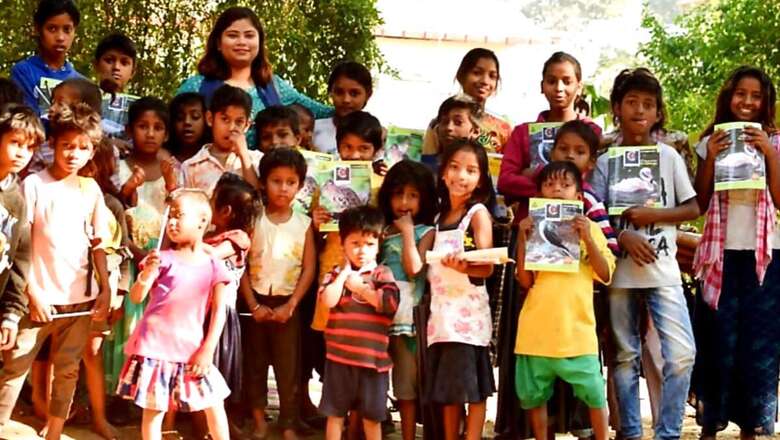Divided by Pandemic, United by Pen Drive: How This Gutsy Assam Teacher is Reaching Students in Slums

views
The Covid-19 pandemic pushed the entire world into chaos and uncertainty, unloading a different set of challenges on everyone.
Before the pandemic, Julie Kakoty juggled expertly between her roles as a student and a teacher. With classroom education no longer possible, she now has to come up with new ways to impart education to her students.
The move from traditional classrooms to digital ones has been the education sector’s biggest challenge in this pandemic. But the crisis also brings plethora of opportunities with itself. And it’s time to acknowledge and appreciate the potential of technology in learning. Stakeholders in the education sector have been endorsing online learning so it doesn’t end when the pandemic eventually does.
However for Julie Kakoty who runs Chaksu, a school in the slums of Guwahati Medical College Hospital, things were a bit more complicated than she expected them to be.
Majority of private schools and other educational institutions have initiated mandatory virtual classes on a daily basis, and thus, teachers are unfailingly sharing their lessons over Skype, Zoom and other e-classroom options.
However for Kakoty, all this was a privilege. Her students, mostly from underprivileged and backward families, did not have smartphones, laptop or internet to adapt to the ‘new normal’.
“I started Chaksu one year ago in the slums of the medical college. Initially, there were around 20 students and the number kept on increasing. Today, there are around 100 of them from Class 1 to 9. I basically believe in fun learning and practical education,” said Kakoty.
A student in the Department of Mass Communication at Guwahati University, Kakoty cycles up to the Medical Hill everyday where she runs the school in a room in the slums. Her classes stretch three to four hours, sometimes late into the evening. The set-up is more informal where students come up with their queries and Kakoty teaches them in a fun way.
“It’s not easy to run a school here. The women come to the classroom and play Ludo in a corner. This is disturbing. Most men are drunks and pick up brawls almost every day near the school. I feel scared and at times intimidated too. It’s not a safe place at all. But think, why is this place like this? Why do we find these kind of people in the slums? Education is the only way to change things and I shall keep working to usher in this change among the students,” says Kakoty.
“Being an orphan, I felt neglected on many occasions, but I don’t want my students to be neglected,” she adds.
Determined not to let her students down, Kakoty’s teaching now relies on a pen drive on which she records her classes. The village headman collects the pen drive from her every Sunday and plays it on a TV at his house for the students to watch and learn.
“We miss our teacher a lot. We are not able to play with her, or go to the science park or to the hills as we used to do. But we get to see her on the TV and do our classes. She gives us homework too, which we complete and send with the headman every week. Though not physically, she is always with us,” says Sabita, who studies in Class 5 at the government school and has never missed a single class since Kakoty started Chaksu.
“I didn’t think that the idea of teaching my students using a pen drive would succeed. However, more than 100 students are at pace with their academic sessions. My experiment has been successful so far,” said Kakoty, adding that volunteers also shared tutorial videos after she appealed on Facebook.













Comments
0 comment